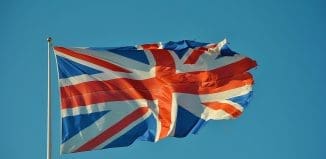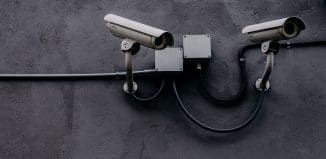First “East of Suez” UK Naval Base In 40 Years Begins Construction In Bahrain
This post is also available in:  עברית (Hebrew)
עברית (Hebrew)
by Konstantin Bodragin
UK foreign secretary Philip Hammond and his Bahraini counterpart Foreign Minister Khalid bin Ahmed Al Khalifa held a groundbreaking ceremony last weekend, to mark the beginning construction of a new permanent naval base in Bahrain.
Construction of the new base, HMS Juffair (named after Britain’s Bahraini naval base that operated in the middle of the twentieth century), “marks a watershed moment in the UK’s commitment to the region. The presence of the Royal Navy in Bahrain is guaranteed into the future, ensuring Britain’s sustained presence east of Suez. The new facility will enable Britain to work with our allies to reinforce stability in the Gulf and beyond,” Hammond said at the ceremony.
This will be the first British naval base constructed in the Persian Gulf in over 40 years, after a wave of closures by a cash-strapped Labour government from the late 60s onwards. In 1968, asserting its anti-colonialist commitment, Harold Wilson’s government announced Britain’s withdrawal from from all bases east of Aden (Yemen, then under British administration). The “East of Suez” declaration, as it has become commonly known, marks for many the end of the British Empire. Bahrain announced its independence from Britain in 1971. Almost five decades later Britain is set to return to the Gulf.
In many ways, the return is only formal – Britain never left. It has strong, long-standing security ties with many of the Gulf states, including Qatar, Saudi Arabia, UAE and Oman. Until now, British Navy ships docked and were serviced at the American base at Mina Salman, near which the new Royal Navy base is to be located. Gulf states served a vital role in Allied operations in Afghanistan. Four British mine-hunter ships are already based in Bahrain, and others rely on facilities in the kingdom.
The project has not been without controversy. It was first announced last December amid allegations that the base serves as a “reward” for British silence of human rights abuses in the turbulent state. Further, questions over the legality of the base have been raised by Bahraini opposition. According to the state’s constitution, all treaties “relating to state territory” must be passed through the parliament. However, the Bahraini parliament has yet been consulted, says Jawad Fairooz, an opposition activist now based in London.
British Labour Party leader, Jeremy Corbyn, is expected to oppose the base as well, as the base would be “deeply upsetting for those who suffered human rights abuses by the government of Bahrain” and would “exacerbate tensions in the region.”
Hammond told BBC News that “Bahrain is not perfect by any means,” but insisted that Britain is helping the Gulf state to change. A government spokesperson previously said that the “UK government is supporting the government of Bahrain in its reform programme, including work to help Bahrain strengthen its human rights and justice sector. We welcome the progress Bahrain is making in this area with the support of NGOs and will continue to provide assistance to them.” At the ceremony, Hammond praised Bahrain’s commitment and tangible efforts for the benefit of the region and its people.
According to analysis at The Economist, the move demonstrates the strong ties between Britain’s current government and the Gulf monarchies, with whom it maintains substantial investment and trading relations. Defence analysts have reported that Bahrain is keen on sourcing Typhoon combat jets, which are built by British firm BAE Systems.
Ostensibly, the aim of HMS Juffair is to serve in operations against ISIL and other terrorist organisations in the region, which Hammond called the “great challenge of our time.” However, fears of further destabilisation are rife. Rather than provide security, the move suggests “a narrow and myopic” definition of regional stability, says Shashank Joshi of the think-tank RUSI.
Last year, Gareth Stansfield and Saul Kelly, in a report for RUSI, argued that the force Britain could deploy in the Gulf might be “large enough to get us into trouble, but too small to get us out of trouble once it starts”.
The base is expected to be completed by autumn 2016. It will provide port facilities for the Royal Navy’s latest Type 45 destroyers and two new generation aircraft carries, to be built by the end of the decade. Construction costs of $23m are to be paid mostly by the Bahraini Royal family, with Britain covering running costs.





























